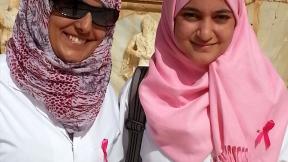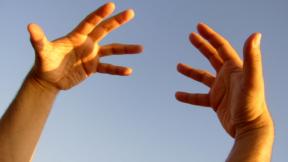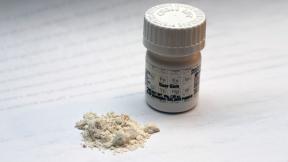
Among the physical diseases of the heart, the major one is coronary heart disease. This occurs when the arteries that supply the heart with blood and oxygen become narrowed because of deposits of cholesterol on the artery walls. If not enough oxygenated blood can reach the heart then an angina attack results. In more severe cases,' if the supply of blood is completely cut off from a portion of the heart, a heart attack will result. Coronary heart disease is one of the major causes of death in the Western world.
According to statistics, about one million people in the US (1) and 110,000 people in the UK (2) die each year from coronary heart disease. Although modern medicines and heart surgery can treat coronary heart disease, the best course of action is prevention through lifestyle changes.
The vast majority of diseases are related to our diet and the Islamic lifestyle as prescribed by Prophet Muhammad, peace and blessings be upon him, is an ideal course of prevention for many diseases, including those of the heart. The Prophet disliked excessive eating. He lived with a flat belly and he died with a flat belly. He is reported to have said:
"No man fills a vessel worse than his stomach. A few morsels are enough for the son of Adam (human being) to keep his back upright. But if he must eat more, then he should fill one-third of his stomach with food, one-third with drink and leave one third-empty for the air (for easy breathing)" (At-Tirmidhi).
It is important to exercise moderation in our eating habits. Limiting the consumption of food results in a tender heart, a strong intellect, a humble self and it weakens desires. Excessive eating brings about the opposite of these praiseworthy qualities. Ibrahim ibn Adham said:
"Anyone who controls his stomach is in control of his Deen, and anyone who controls his hunger is in control of good behaviour. Disobedience towards Allah is nearest to a person who is satiated with a full stomach, and furthest away from a person who is hungry"(3).
Two of the most important aspects of Islam are Salah and Dhikr and these are equally important as part of a healthy lifestyle as the Prophet advised:
"Dissolve and digest your food through the process of remembrance of Allah and offering of prayers" (Abu Nuaym).
It is for this reason that the five obligatory prayers are arranged as they are. Traditionally, the Dhuhr and Isha prayers are offered after a meal and these are longer, allowing us to gently exercise the body and prevent us from sleeping immediately after meals. The wisdom behind this was explained by the Prophet:
"Do not go to bed immediately after the meals; it will harden your heart. Avoid any hard or large quantum of exercise immediately after meals; it will also cause damage" (Abu Nuaym).
The quality of the food we eat affects both our physical and spiritual health. It is important to eat pure food that has been obtained using Halal income.
In Surah Al-Kahf, when the Sleepers of the Cave awoke after their long sleep and sent one of their number to the nearby town market to buy some food, they advised him to get food which they described as 'Azka ta'aman' (pure food). These pious young men realised the importance of eating pure food in order to maintain a pure heart (4).
Part of the reason that the hearts of Muslims are destroyed is because we are no longer careful about choosing food that is pure. Instead of eating homemade food filled with barakah, we prefer fast food, which in the words of Sheikh Hamza Yusuf, is "made with haste and waste, two attributes of the devil" (5).
It is important for us to be conscious of the purity of the food we are eating for the sake of the physical and spiritual health of our hearts.
Excerpted from Dr. Gohar Mushtaq's book "The Intelligent Heart, the Pure Heart: An Insight into the Heart based on the Qur'an, Sunnah and Modern Science", published by Ta-Ha Publishers Ltd., UK (p. 40-42).
----------
1.Athar, Shahid, M.D. (1995). Health Concerns for Believers: Contemporary Issues. Chicago, Kazi Publications, Inc.
2. Department of Health, UK
3. Ghazali, Imam Abu Hamid (1978). Ihy. U/um ud Din. Karachi, Oarul Isha'at Publishers.
4. A group of five to seven pious young men who had fled the persecution of a tytant ruler and hid in a cave and Allah put them to sleep for about 300 years.
5. Yusuf, Harnza (2001). Agenda to Change Our Condition. Hayward, Zaytuna Institute.








Comments
HEART
AS-SALAAMU-ALAIKUM
I JUST FOUND OUT THAT I WILL HAVE TO GO FOR SURGERY REGARDING MY HEART THERE IS A BLOCK IN MY ARTERY PLEASE DO DUA FOR ME AND GIVE ME GOOD ADVISE.
Location
Add new comment